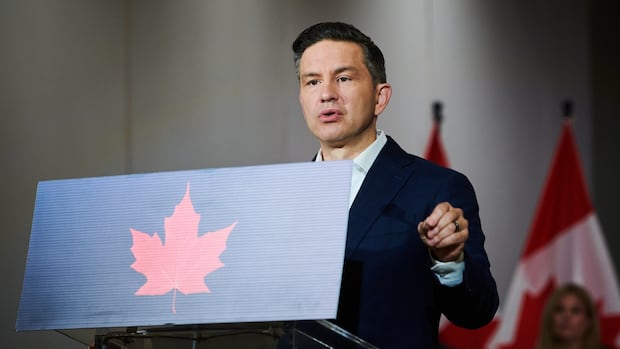Poilievre ‘playing politics’ by targeting temporary foreign workers, U of Regina prof says

University of Regina Professor Criticizes Pierre Poilievre’s Call to Scrap Temporary Foreign Worker Program
A University of Regina professor has spoken out against Conservative leader Pierre Poilievre’s recent call to abolish the temporary foreign worker program, stating that it is fueling anti-immigrant sentiments in the country and lacks evidence-based reasoning.
Andrew Stevens, an associate professor at the University of Regina, criticized Poilievre’s claims that the program floods the job market with cheap labor, making it difficult for young Canadians to find work. Stevens emphasized the importance of making decisions based on solid evidence rather than playing politics with immigration policies.
Stevens also pointed out the contradictions in Poilievre’s stance, especially considering the economic dependence of provinces like Saskatchewan on immigration for growth. He highlighted the role of different migrant streams, such as the immigrant nominee programs and temporary worker programs, in driving economic development and population growth in the region.
Saskatchewan Premier Scott Moe echoed Stevens’ sentiments, emphasizing the need for a balanced immigration policy that benefits both immigrants and the local community. Moe also raised concerns about the federal government’s cuts to the Saskatchewan immigrant nominee program, which has had a significant impact on the province’s ability to attract skilled workers.
One sector that heavily relies on temporary foreign workers is agriculture. Poilievre suggested creating a separate program for agricultural labor, a proposal supported by the Wheat Growers Association. However, questions remain about the specific parameters of such a program and which industries would qualify for inclusion.
Jeremy Welter, vice-president of the Agricultural Producers Association of Saskatchewan, welcomed the recognition of the agricultural sector’s need for a robust labor force but called for clarity on the details of the proposed program. He raised concerns about the inclusion of essential roles like trucking and food processing in the agriculture industry.
Stevens emphasized the need for stronger enforcement of existing rules to prevent exploitation of foreign workers and ensure fair employment practices. He urged policymakers to prioritize evidence-based decision-making and address issues like youth unemployment without demonizing newcomers.
In conclusion, the debate around the temporary foreign worker program highlights the complex challenges facing Canada’s immigration system. By focusing on evidence-based solutions and prioritizing the well-being of both immigrants and Canadian workers, policymakers can create a more inclusive and sustainable approach to workforce development.




